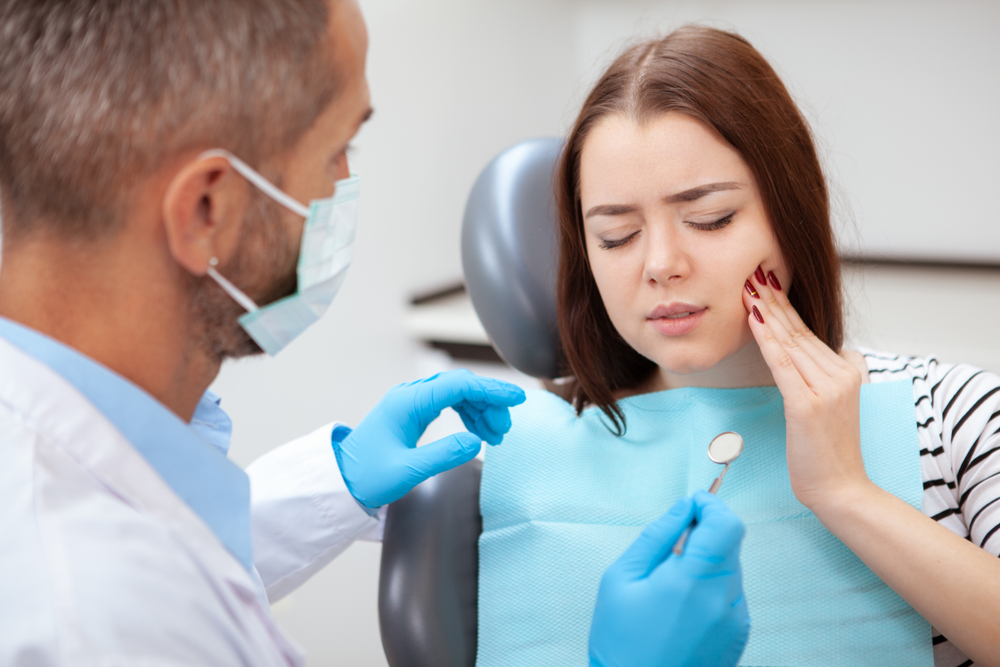Dental emergencies can strike when you least expect them, leaving you in pain and unsure of what to do next. Knowing the signs of a dental emergency and how to respond is crucial for protecting your oral health and preventing further complications. Whether it’s a sudden toothache or a knocked-out tooth, you’ll need prompt care from an emergency dentist in Boston to address the issue effectively. Let’s dive into the top 10 signs you’re facing a dental emergency and how you can handle them until you see a professional.
1. Severe Toothache That Doesn’t Go Away
While occasional tooth sensitivity or mild discomfort can be normal, a persistent or severe toothache is often a sign of a deeper issue. This could indicate an infection, decay, or an abscess.
What to Do:
Rinse your mouth with warm salt water to reduce inflammation. Avoid applying aspirin directly to the gums, as this can cause irritation. Schedule an appointment with your dentist as soon as possible.
2. Swelling in the Face or Jaw
Facial swelling, especially if it’s accompanied by pain, could be a sign of an abscess or an infection spreading beyond the tooth. Left untreated, this can lead to serious complications.
What to Do:
Use a cold compress to reduce swelling and seek immediate care from an emergency dentist. Avoid lying flat, as this can exacerbate the swelling.
3. Broken or Cracked Tooth
Accidents, biting down on hard foods, or grinding your teeth can lead to cracks or breaks. While minor chips may not be urgent, deep cracks that expose the tooth’s pulp are a serious concern.
What to Do:
Rinse your mouth with warm water and save any tooth fragments. Cover sharp edges with dental wax to avoid cuts and visit your dentist promptly.
4. Knocked-Out Tooth
A knocked-out tooth is one of the most obvious dental emergencies. Quick action is key to saving the tooth.
What to Do:
Hold the tooth by the crown (not the root), rinse it gently with water, and try to place it back in its socket. If that’s not possible, store it in milk or saliva. Get to an emergency dentist within 30 minutes for the best chance of reattachment.
5. Bleeding That Won’t Stop
Uncontrolled bleeding from the mouth is a red flag. This could occur after trauma, a dental procedure, or due to gum disease.
What to Do:
Apply gentle pressure with a clean cloth or gauze to control the bleeding. If it doesn’t stop within 10-15 minutes, head to an emergency dentist or the nearest urgent care facility.
6. Intense Sensitivity to Hot or Cold
Tooth sensitivity is common, but if you experience sudden, intense pain when consuming hot or cold foods, it may point to an exposed nerve or damaged enamel.
What to Do:
Avoid hot, cold, or sugary foods that trigger sensitivity. Use toothpaste designed for sensitive teeth and schedule an evaluation to determine the underlying cause.
7. Lost Filling or Crown
Losing a filling or crown not only leaves your tooth vulnerable to further damage but can also be quite painful.
What to Do:
Temporarily cover the exposed area with dental cement, which you can find at most pharmacies. Avoid chewing on that side of your mouth and contact your dentist for a replacement.
8. Gum or Tooth Abscess
An abscess is a pocket of pus caused by an infection, often leading to intense pain, swelling, and sometimes fever. This condition requires immediate attention to prevent the infection from spreading.
What to Do:
Rinse your mouth with warm salt water several times a day to ease pain and draw out pus. Don’t attempt to drain the abscess yourself; consult an emergency dentist immediately.
9. Loose Adult Tooth
Adult teeth should never feel loose. If you notice one shifting or wiggling, it may indicate advanced gum disease or an injury to the tooth’s supporting structures.
What to Do:
Avoid touching or wiggling the tooth, as this can cause more damage. Schedule an emergency appointment to assess the problem and determine the next steps.
10. Unexplained Bad Taste or Odor in Your Mouth
A sudden, foul taste or odor that doesn’t go away after brushing could indicate an infection or decayed tissue.
What to Do:
Rinse your mouth thoroughly and keep it clean, but don’t ignore this symptom. It’s important to see an emergency dentist to identify the root cause.
When to Contact an Emergency Dentist
While some dental issues can wait for a regular appointment, the signs above require urgent care. Ignoring them can lead to complications, including infections, tooth loss, and other systemic health issues.
An emergency dentist in Boston is equipped to handle these situations promptly and effectively. Don’t hesitate to reach out if you’re experiencing any of these symptoms.
How to Prevent Dental Emergencies
Prevention is always better than treatment. Here are some simple steps to minimize the risk of dental emergencies:
- Wear a mouthguard during sports.
- Avoid chewing hard foods like ice or popcorn kernels.
- Maintain good oral hygiene to prevent decay and gum disease.
- Visit your dentist regularly for checkups and cleanings.
Why Prompt Treatment Matters
Dental emergencies often worsen if left untreated. Addressing them early not only alleviates pain but can also save your teeth and prevent costly procedures later. For instance, treating a cracked tooth early can prevent it from turning into a root canal case.
Conclusion
Recognizing the signs of a dental emergency and knowing how to respond can make all the difference in preserving your smile and oral health. From severe toothaches to knocked-out teeth, these situations require immediate attention from a trusted dentist.
If you’re dealing with a dental emergency, don’t wait—seek professional care. For reliable and prompt assistance, connect with a trusted dentist in Boston who can provide the expert care you need. Taking swift action will ensure the best possible outcome for your dental health.





Comments